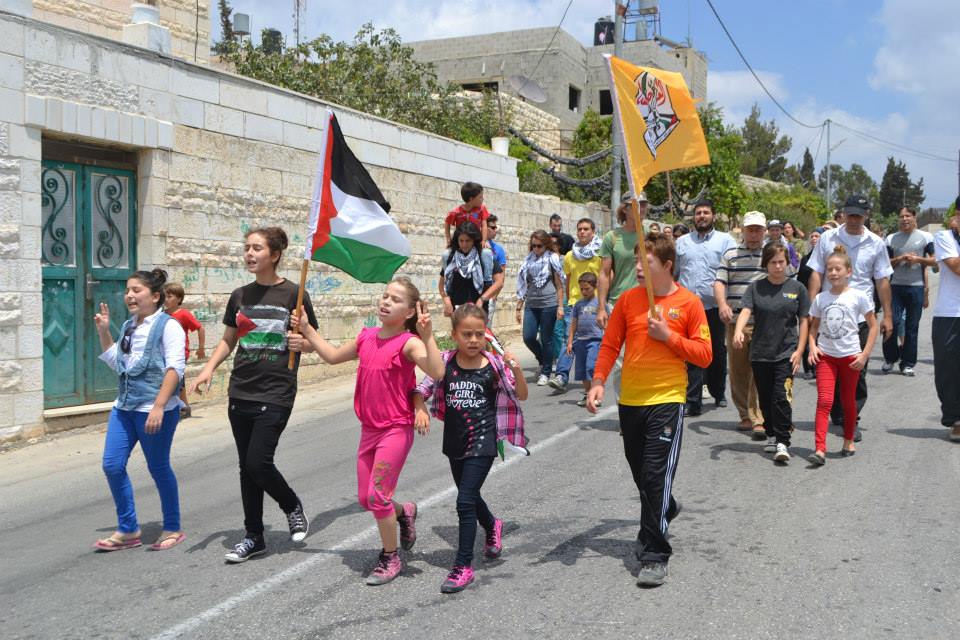Tag: Demonstration
-
Video- Kafr Qaddum demonstration against the Prawer Plan violently repressed by the Israeli army
20th July 2013 | International Women’s Peace Service | Kafr Qaddum, Occupied Palestine On Friday 19 July, the residents of Kafr Qaddum gathered for a demonstration against the Prawer Plan, an Israeli government plan that will ethnically cleanse the occupied al-Naqab desert. Protesters were violently attacked by Israeli soldiers who repeatedly raided the village firing…
-
Photo essay: Israeli activist injured with a rubber-coated steel bullet at Nabi Saleh demonstration
19th July 2013 | International Solidarity Movement, Ramallah Team | Nabi Saleh, Occupied Palestine Today, around fifty Palestinians together with Israeli and international activists marched from the centre of Nabi Saleh down the main road towards the stolen spring. Protesters made barricades of burning tyres to prevent Israeli forces from raiding the village. Soon after…
-
Video- Journalists’ protest violently supressed by Israeli forces at Qalandiya checkpoint
18th July 2013 | International Solidarity Movement, Ramallah Team | Qalandiya, Occupied Palestine Yesterday, around 150 Palestinian journalists protested at Qalandiya checkpoint demanding freedom of movement for journalists. Israeli forces violently suppressed the demonstration by throwing sound bombs and shooting rubber coated steel bullets at journalists, resulting in five people injured. At 12am, journalists arrived…

